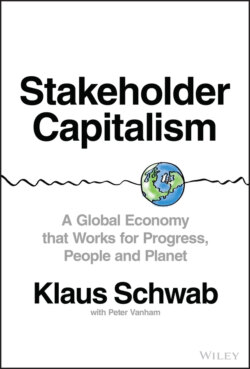Читать книгу Stakeholder Capitalism - Klaus Schwab - Страница 14
Die Wende
ОглавлениеThese trends did not happen in isolation. As the 1980s progressed, the economies of Eastern Europe started to collapse. Their failure at this industrial transition point showed that the state-led economic model put forth by the Soviet Union was less resilient than the market-based one promoted by the West. In China, the government of new leader Deng Xiaoping started its own Reform and Opening-Up in 1979, gradually introducing capitalist and market-based policies (see Chapter 3).
In 1989, Germany experienced a moment of euphoria, as the Berlin Wall, which separated East from West, fell. Shortly thereafter, political reunification of Germany was at last established. And by 1991, the Soviet Union had officially disintegrated. Many economies that lay in its sphere of influence, including those of East Germany, the Baltics, Poland, Hungary, and Romania, turned toward the West and its capitalist, free-market model. “The end of history,” as Francis Fukuyama would call it later,21 had arrived, it seemed. Europe got another boost, this time leading to even deeper political and economic integration and the establishment of a common market and a monetary union, with the euro currency as its apex.
At Davos, we felt the winds of change as well. Whereas initially the European Management Forum had been primarily a meeting place between European and American academics, policymakers, and businesspeople, over the course of the 1980s it had become global. The 1980s saw the inclusion of representatives from China, India, the Middle East, and other regions and a shared, global agenda. By 1987, a name change had become necessary. We were thenceforth known as the World Economic Forum. It was fitting for the era of globalization that followed.
